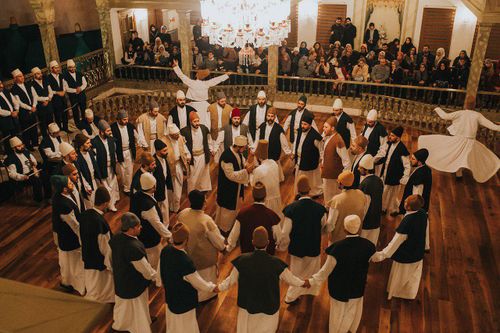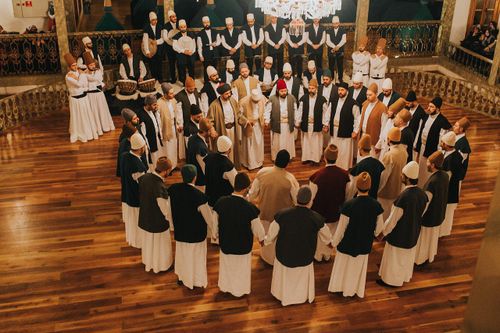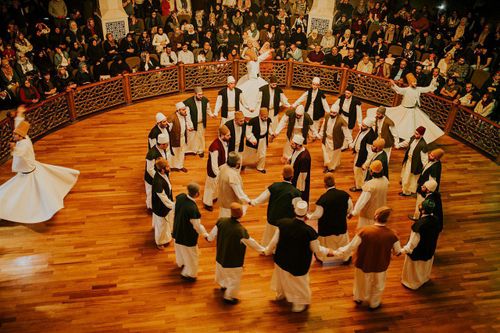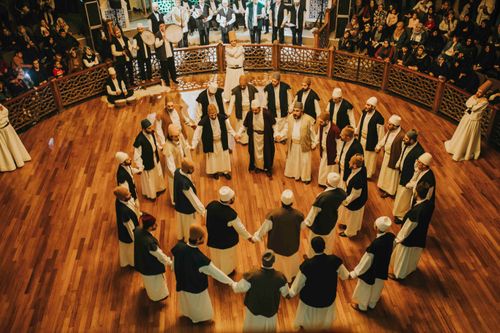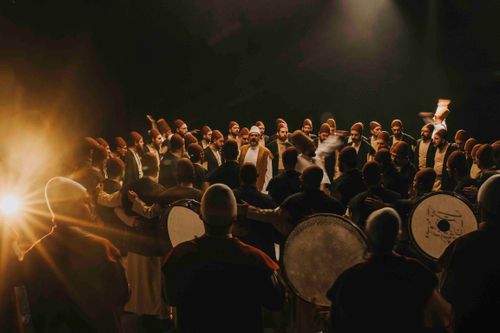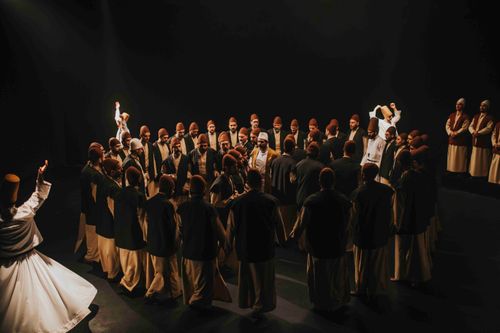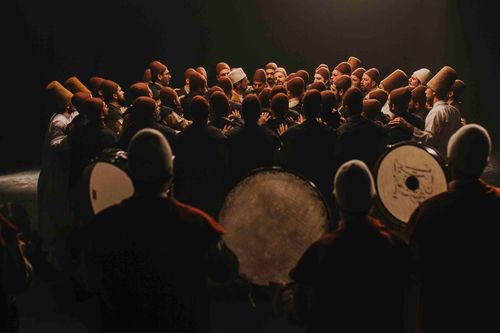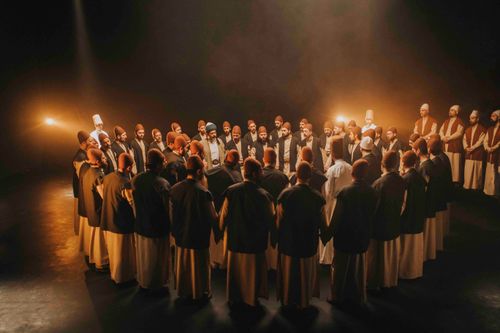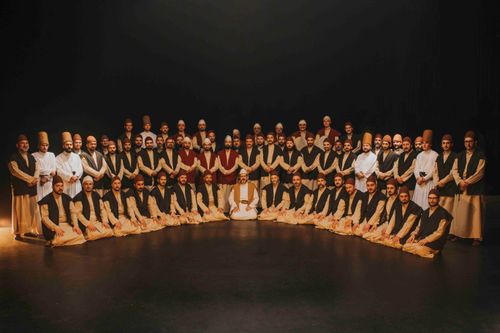DEVRAN - CIRCULAR DHIKR CEREMONY
Devran: A Living Tradition in Sufi Spirituality
From the earliest days of Islamic mysticism, Sufis have gathered to remember God through sacred rituals, often known by various names across time and region. As Sufi paths gradually formalized into organized tariqas (spiritual orders), these gatherings, once fluid and informal, evolved into structured ceremonies guided by spiritual discipline and shared tradition.
While differing in style based on geography and the pedagogical methods of each order, Sufi remembrance (dhikr) rituals are typically classified into three main forms:
• Qu’ud Dhikr: performed while seated in stillness,
• Qiyam Dhikr: performed standing with rhythmic swaying,
• Devran Dhikr: performed in a circular motion, either by walking hand-in-hand or rotating around a central axis.
Among these, the Devran Dhikr holds a distinctive place, particularly within the Khalwati Order, with deep roots in the cultural and spiritual fabric of the Ottoman world. From Anatolia to the Balkans, this practice became a hallmark of Khalwati gatherings and also found expression in other influential orders such as the Qadiriyya and Rifa'iyya.
The term devran derives from the Arabic root dāra, meaning “to turn” or “to revolve.” In spiritual context, it evokes continuous motion—circling like the planets in orbit or the blood in our veins—symbolizing the ceaseless remembrance of the Divine. In the ceremony, participants form a circle and, led by a sheikh, perform rhythmic movements while invoking the Names of God.
The ritual begins with the collective chanting of an usul ilahisi, a hymn outlining the spiritual principles of the dervish path. As participants gently sway—echoing the grace of cypress trees swaying in the breeze—this hymn sets the emotional and spiritual tone of the gathering. This tradition is closely associated with the Anatolian Sufi master, Shams al-Din Sivasi (16th Century).
The Devran Dhikr is performed in a circular formation—a sacred symbol of equality among all seekers on the path to the Divine. The circle represents unity, with no beginning or end, where no one stands above another in proximity to God. Dervishes join hands or place their hands on each other's shoulders, embodying the idea of becoming a united on the path leading toward the Truth (Haqq).
In the Khalwati tradition, the motion of the devran is directed left—toward the heart. As the circle turns from right to left, the movement symbolically leads each invocation toward the spiritual heart. With every rotation, dervishes seek to illuminate their own hearts—and those of their companions—with the divine light of remembrance.
The ceremonial space where the dhikr takes place is understood to represent the Prophetic Light of Muhammad (noor-i Muhammadî). Loud and rhythmic invocations, often recited with great intensity, train the dervish to keep God present not only in the ritual but in every moment of daily life. These powerful chants help the seeker cultivate the habit of constant remembrance—of seeing the divine in all experiences.
The sacred hymns sung during dhikr offer more than beauty—they are carriers of timeless spiritual teachings. Through their melodies, the dervish receives essential lessons in love, ethics, and divine knowledge—guiding principles for a lifetime on the Sufi path.
Following the hymn, blessings and salutations upon the Prophet Muhammad (pubh) are recited, and the circle transitions into the devran. It begins with the invocation of the Divine Name Hu—a symbol of pure, unmediated love for the Truth—chanted in harmonic rhythm. This is followed by the name Hayy ("The Ever-Living"), representing the revival of hearts through divine remembrance.
Throughout the ritual, hymns and sacred melodies are performed by a group of vocalists known as the zakiran. These skilled performers enrich the ceremony with elements of traditional Islamic music, enhancing the spiritual atmosphere. The pace of the dhikr may rise or fall, guided by the sheikh and responsive to the spiritual energy of the gathering.
Over time, Sufi traditions have inspired one another, adopting and adapting different forms of dhikr. A notable example is the Badawi circle, a ritual rooted in the Badawi order. In this form, dervishes spiral around the sheikh while the zakiran recite blessings upon the Prophet. Afterward, a passage from the Qur’an is read, followed by a collective supplication known as the gulbank.
The word gulbank, of Persian origin, literally means “nightingale’s song.” During this powerful closing prayer, participants join their voices in the rhythmic invocation of “Allah Allah,” placing hands and feet in unison. The ceremony culminates with the resounding call of “Hu” and the recitation of al-Fatiha, sealing the spiritual gathering.
